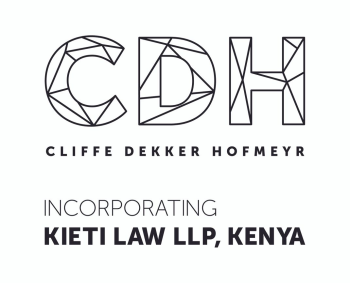On 17 October 2018 the National Treasury and the South African Revenue Service (SARS) appeared before Parliament's Standing Committee on Finance (SCoF) to provide it with a further update regarding some of the proposals contained in the 2018 draft Taxation Laws Amendment Bill published earlier this year. One of the key proposals related to the doubtful debt provisions in Sections 11(j) and 11(jA) in the Income Tax Act (58/1962) regarding which the National Treasury received substantial input from the public. On 4 and 5 September 2018, the proposed amendments to these provisions were robustly debated during the workshops hosted for all stakeholders by the National Treasury and SARS, which were well attended by members of the tax profession.
The presentation document reflecting the National Treasury and SARS' feedback to the SCoF states that following the workshops that took place on 4 and 5 September 2018, the National Treasury and SARS held a further meeting with stakeholders on 28 September 2018. This meeting was to discuss the proposed amendments in the draft Taxation Laws Amendment Bill based on the comments received by the National Treasury and SARS during the consultation process. Pursuant to this further consultation, the National Treasury revised the proposed amendments as they were contained in the draft Taxation Laws Amendment Bill. Pursuant to this further amendment, the feedback document proposed that the doubtful debt provisions in Section 11(j) of the act provide for the following as detailed below.
If a taxpayer is applying International Financial Reporting Standards 9 for financial reporting purposes to determine a loss allowance relating to impairment in respect of debt, the following is permitted:
- 40% of the International Financial Reporting Standard 9 loss allowance relating to impairment that is measured at an amount equal to the lifetime expected credit loss plus bad debt written off that does meet the tax write-off requirements; and
- 25% of the difference between the International Financial Reporting Standard 9 loss allowance relating to impairment and International Financial Reporting Standard 9 loss allowance in respect of which the 40% tax allowance.
If a taxpayer is not applying International Financial Reporting Standard 9 for financial reporting purposes, an age analysis of debt should be used, which will work as follows:
- 40% of the face value of doubtful debts that are at least 120 days past due date will be allowed as a deduction; and
- 25% of the face value of doubtful debts that are at least 60 days past due date but excluding doubtful debts that are at least 120 days past due date will be allowed as a deduction.
Further, it is proposed that on application by a taxpayer, SARS may issue a directive to that taxpayer that the abovementioned 40% be increased to a percentage not exceeding 85% after taking into account the following proposed set of criteria:
- the history of the debt owed to that taxpayer, including the number of repayments not met and the duration of the debt;
- steps taken to enforce repayment of the debt;
- the likelihood of the debt being recovered;
- any security available in respect of that debt;
- the criteria applied by the taxpayer in classifying debt as bad; and
- such other considerations as the commissioner for SARS may deem relevant.
The above proposals were included in the Taxation Laws Amendment Bill that was tabled in Parliament on 24 October 2018 and these amendments will come into force once the bill is passed by parliament, signed by the president and published in the Government Gazette.
For further information on this topic please contact Louis Botha at Cliffe Dekker Hofmeyr by telephone (+27 115 621 000) or email ([email protected]). The Cliffe Dekker Hofmeyr website can be accessed at www.cliffedekkerhofmeyr.com.
This article was first published by the International Law Office, a premium online legal update service for major companies and law firms worldwide. Register for a free subscription.



